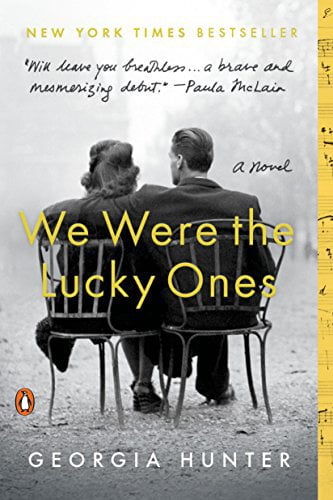Nonfiction/Fiction Tour Through a Topic: Auschwitz, Mengele, and the Warsaw Zoo
A nonfiction and fiction book tour through the World War II subjects of Auschwitz, Mengele, and the Warsaw Zoo and occupation of Poland.
This post may include affiliate links. That means if you click and make a purchase, I may earn a small commission. Please see Disclosures for more information.
This week in Nonfiction November, the topic is nonfiction/fiction book pairings. I thought I’d put a little twist on this and do what I’m calling a “tour through a topic”–or what ends up here being several topics, all related to World War II and the Holocaust.
The topic this week is hosted by Sarah at Sarah’s Book Shelves; here is the prompt:
It can be a “If you loved this book, read this!” or just two titles that you think would go well together. Maybe it’s a historical novel and you’d like to get the real history by reading a nonfiction version of the story.
What prompted my decision to “tour through a topic” was the connections between several books I’ve read this year–all fiction based on true stories–and the questions they prompted about the real stories, which led me to the nonfiction books. I have not read either of the nonfiction books yet, but when I’m ready again for some World War II reads, they are on my list.
The topics I’m focused on here are Auschwitz, Joseph Mengele, the Warsaw Zoo, and the occupation of Poland. Joseph Mengele was a horrific “doctor” who conducted medical experiments on 3,000 twins in Auschwitz–only 160 survived. The Warsaw Zoo was used to shelter and hide almost 300 Jewish people in the animal cages, after the Nazis slaughtered most of the animals while occupying Poland.
Among stories of unimaginable cruelty are also stories of compassion and bravery–three things that were hallmarks of World War II. The five books below are all connected by these things, and by some common threads in the stories. Read them in the order below to follow the thread.
Nonfiction and Fiction Books about Auschwitz, Mengele, and the Warsaw Zoo
Countless books have been written on World War II and the Holocaust; these are just a few that have been on my radar. What others would you recommend that are related?
Last Year for Nonfiction November
I went a different direction last year and recommended a trio of books for people who love Little House on the Prairie.








Thrilled to see We Were the Lucky Ones on here! And the Twins book sounds fascinating…I’m super burned out of WWII, but that is one part of it I know nothing about.
I’ve been wanting to read the Tattooist of Auschwitz. I’ve heard it’s good, but I’ve read quite a few Holocaust/WWII books in the last 6 months and think I need a little break. The first book that popped into my mind was Lilac Girls. Loved this book even though it was difficult to read. Other Holocaust books that fall into this category that I loved are Rena’s Promise, a true story about a woman who survived Auschwitz for 3 years (Mengele is mentioned quite a bit) and The Boy on the Wooden Box, which is the true story of the youngest worker on Schindler’s List. That last one is probably one of my all time favorite books!
It’s interesting to see all the connections in the books we read. I’ve kind of moved away from reading WWII stories of late though.
Three novels that came to mind were interesting to me because they are from a completely different perspective- that of the Germans. One is Chris Bohjalian’s Skeletons at the Feast- my favorite of his books. Two is City of Women about life in Berlin after all the men have been drafted/killed. The last is The Undertaking and while it is very difficult reading it is powerful and compelling.
tough theme… I have read this amazing bio: https://wordsandpeace.com/2017/03/28/book-review-adolfo-kaminsky-a-forgers-life/
here’s my post: https://wordsandpeace.com/2018/11/07/nonfiction-november-2018-book-pairings/
I’ve been seeing The Tattooist of Auschwitz everywhere lately. I read a lot of books about WWII, so I will definitely be checking these out!